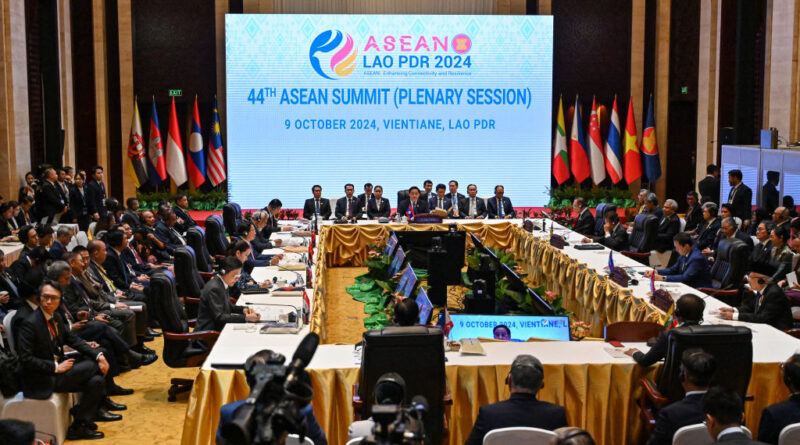Australia, Canada, and New Zealand to Hold Discussions on Trade and Security at ASEAN Summit
The significance of cooperation between allied countries in addressing global economic and political issues was emphasized by the three nations.
Leaders of Australia, Canada, and New Zealand are set to convene a trilateral meeting to enhance collaboration on economic and political matters.
This meeting coincides with their attendance at the 44th ASEAN Summit in Vientiane, Laos.
During a press conference before the meeting on Oct. 10, Canadian Prime Minister Justin Trudeau disclosed that the countries were involved in significant critical minerals initiatives and were upholding the Comprehensive and Progressive Agreement for Trans-Pacific Partnership (CPTPP).
The CPTPP, involving 11 nations in the Asia Pacific region, aims to reduce tariffs in key sectors and facilitate trade.
Trudeau also highlighted the alliance of the three nations as part of the Five Eyes partnership and their monitoring of developments in the Middle East.
Australian Prime Minister Anthony Albanese emphasized the common interests and shared values of the three nations, evident in their collaboration on various global issues.
“Our economies will benefit from critical minerals, and as much that we’re cooperating on those areas and cooperating in international forums,” he said.
“As three of the Five Eyes partners, we also have an important role to play in national security, and we share our support for democratic values, our support for human rights, our opposition to violence and some of the conflicts that we see in the world.”
Albanese also mentioned the continued participation of leaders in international forums with other countries, expressing anticipation for the trilateral meeting.
On the other hand, New Zealand Prime Minister Christopher Luxon cautioned about the transition from the rule of law to the “rule of power” worldwide.
He also stressed the importance for the three countries to identify common interests and strengthen their positions on Middle East matters.
Luxon also discussed the significance of the Indo-Pacific region.
“We feel very strongly that our future is in the Indo-Pacific,” Luxon said.
“We see increasingly the issues of security being very linked to economic prosperity and vice versa.”





